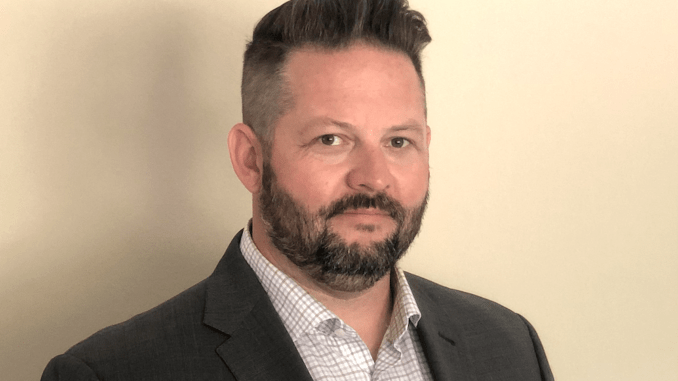
Gravity Stack (GS), the tech development and managed services subsidiary of Reed Smith, has officially launched a new Business Advisory Solutions group, which it has been quietly building for about a year. The move means that GS can compete with organisations providing clients with legal tech consulting. It is also a big step beyond mainly selling its own tech products.
Bryon Bratcher, the San Francisco-based Managing Director of GS, said: ‘I think firms would be surprised to discover that our Business Advisory Solutions team has won RFPs for data forensics, CLM implementations, and transformation projects against some of the biggest consultancies, ALSPs and Big Four accounting firms.
‘What our clients need is a trusted partner to sherpa them through the process. Having worked inside of Reed Smith for years and based on conversations with our clients, we know that these are services corporate legal departments are coming to expect from their outside counsel, and they want a partner who understands the values that are important to lawyers.’
In an earlier interview in December last year, Bratcher (pictured above) told Artificial Lawyer that they already had around 15 people in this new group. Grant Hewlett has been appointed as the Head of the Business Advisory Solutions team. He was previously with Reed Smith before joining GS, and prior to that he was a project manager at Norton Rose Fulbright, and a consultant at Deloitte.
At present the team is ‘mostly in the US, but [they are] actively hiring in the EU and UK’. The full GS team (as of December 2021) was over 45 people, so about a third of those are in the new advisory group.
Bratcher told this site: ‘We have grown a business advisory team, many of whom have backgrounds from the Big Four and ALSPs. We’re doing a lot of consultative work and we are being more proactive.
‘We help with business processes and transformations. We implement tech, and for example, we are doing a lot of CLM implementations.’
Why the move beyond products? And how will this work? After all, Artificial Lawyer asked: wasn’t Gravity Stack initially all about building and selling its own legal tech products to the market?
Bratcher replied: ‘When we were first spun off [from Reed Smith] it was more about products, and that is still a big part of this. But we are also a tech-agnostic group, we offer clients unbiased opinions [about legal tech].’
He noted by way of example that they will spend time talking to clients about how to leverage what the full suite of Microsoft 365 can offer. I.e. the advisory group is not there just to push GS products, such as its Diligence contract review system.
He also stressed that GS was still at an early stage and it was on a journey of development and evolution.
‘It’s only four years since Gravity Stack started, and it’s been an evolution. We have a growth mindset and the market changes constantly.
‘The key to this is about having an unbiased partnership with the clients, and not to try and push specific tech down their throats. We do not want to have re-seller partnerships like the Big Four has.
‘[In terms of our products] we are not trying to make something that becomes the next big thing. We want to make things that are useful to the clients, and this goes hand in hand with the consulting. The idea is to invest in partnerships with the clients,’ Bratcher concluded.

Is this a big deal? In short, yes. Here’s a few thoughts.
First, why only officially announce it now? The answer is that there would be no point in making a big splash before a sufficient number of team members were assembled. But now the team is large enough to take on very sizeable projects.
What does this say about law firm tech groups? It suggests that products alone may not be enough. As many vendors that sell into corporate legal teams have found, you can really benefit from consultants who handle implementation and advisory matters.
This is one reason we have seen the Big Four work hand in hand with a number of tech companies, and the growth of groups such as Syke. Moreover, ALSPs and law companies, such as Elevate, are also building their own tech and providing consulting services to clients in this area.
Having the consulting group is not just a way to make more revenue, it’s arguably an essential part of making Reed Smith’s tech engagements with clients more successful.
Can it really compete with the Big Four? The reality is that although the Big Four are massive, the people focused on legal tech implementation are a relatively small and niche group inside them. There is no reason why GS, which is part of a global law firm, cannot compete head to head in pitches and win on the consulting side of the job. In fact, as Bratcher said, they are winning such work already.
Where does this go? In four years GS has grown to about 45 people. It doesn’t necessarily have to be hundreds of people to make an impact, it just needs to deeply engage with key clients as and when needed. But, if they wanted to grow this, with the current climate for legal ops, CLM adoption and the general focus on process, better use of legal data and driving efficiency, then they would be pushing on an open door.
It will be interesting to see how rival tech groups at other law firms respond, and whether they will also create and/or expand their own tech consulting groups.
1 Trackback / Pingback
Comments are closed.